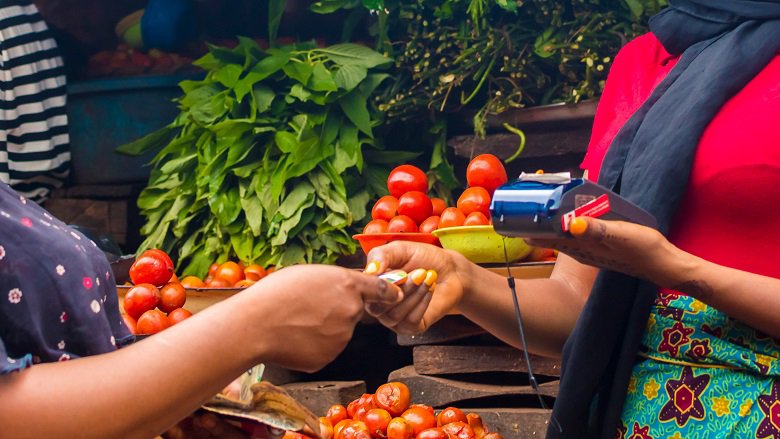In May 2023, Sierra Leone’s President Bio launched the National Payment Switch. This new financial infrastructure, which is part of a $12 million funding program from the World Bank, interconnects six commercial banks and enables payments interoperability among banks, microfinance institutions, mobile money operators and financial technology firms.
In the first phase of what President Bio defined as a “major step forward in this era of the fourth industrial revolution”, the new infrastructure will cover processing of card transactions carried out through point-of-sale and Automated Teller Machines managed by different financial institutions.
Lack of interoperability between payment service providers is a big inconvenience for people in Sierra Leone. They have had to hold multiple cards from different banks, an expensive practice that discouraged electronic payments. The new national payments infrastructure removes this barrier. From now on, individuals and businesses in the country will be able to use just one card to safely send and receive money through different channels (internet, mobile, agent, ATM), regardless of their payment service provider.
Walton Gilpin, managing director of Rokel Commercial Bank and chair of the Sierra Leone Association of Commercial Banks said the new payments infrastructure will advance financial inclusion and encourage a greater share of formal economic activity.
“This will not only bode well for monitoring economic activity at the lower income level of society, but it also benefits the 90 percent of society that would otherwise have transacted outside the banking payment system,” he said. “This will lead to more account penetration and the deepening of financial activities in the economy as interbank transaction will grow.”
This is only the beginning of digital financial services modernization in Sierra Leone. In a second phase to be launched in a few months, the new infrastructure will enable fast payments, an innovative service that allow individuals, businesses, and public authorities to collect and deliver time-sensitive payments, making funds immediately available to beneficiaries on a 24/7 basis.
Thanks to interoperability across channels and payment service providers, people will have the possibility to use one single bank account or mobile money wallet to transact with friends and family, buy goods and services, pay bills and taxes, or receive pensions and social benefits at any time, and in real time. At the launch, President Bio highlighted the benefits in the context of social welfare payments, especially in rural areas –where the presence of banks is typically lower. People will no longer have to make expensive and time-consuming trips to the nearest payment service provider. According to The Global Findex Database 2021, digitalizing agricultural payments alone could increase the share of adults with transaction accounts in Sierra Leone by almost a quarter.
World Bank research shows that Fast Payment Systems accelerate the use of digital financial services, foster financial inclusion, and contribute towards a digital economy. They can play a catalyst role in catering for the needs of the 30 percent of adults in developing economies that still do not have access to a formal transaction account (The Global Findex Database 2021).
The World Bank supports countries in designing and implementing fast payments. About 100 jurisdictions worldwide have launched or are in the process of implementing these systems. In some countries, adoption has been exceptionally quick, while in many others the fast payments journey is still at nascent stages and requires further support to reach its full potential.
In April, the World Bank launched Project FASTT (Frictionless Affordable Safe Timely Transactions). This initiative, supported by the Bill & Melinda Gates Foundation, is a new milestone in our long-lasting dedication to promoting the development of fast payments. Over the years, the Finance, Competitiveness & Innovation (FCI) Global Practice of the World Bank has assisted more than 120 countries in modernizing their payment systems. Through Project FASTT, we will continue to provide technical and financial assistance to jurisdictions, create additional knowledge and advocate for the adoption of fast payments worldwide.



